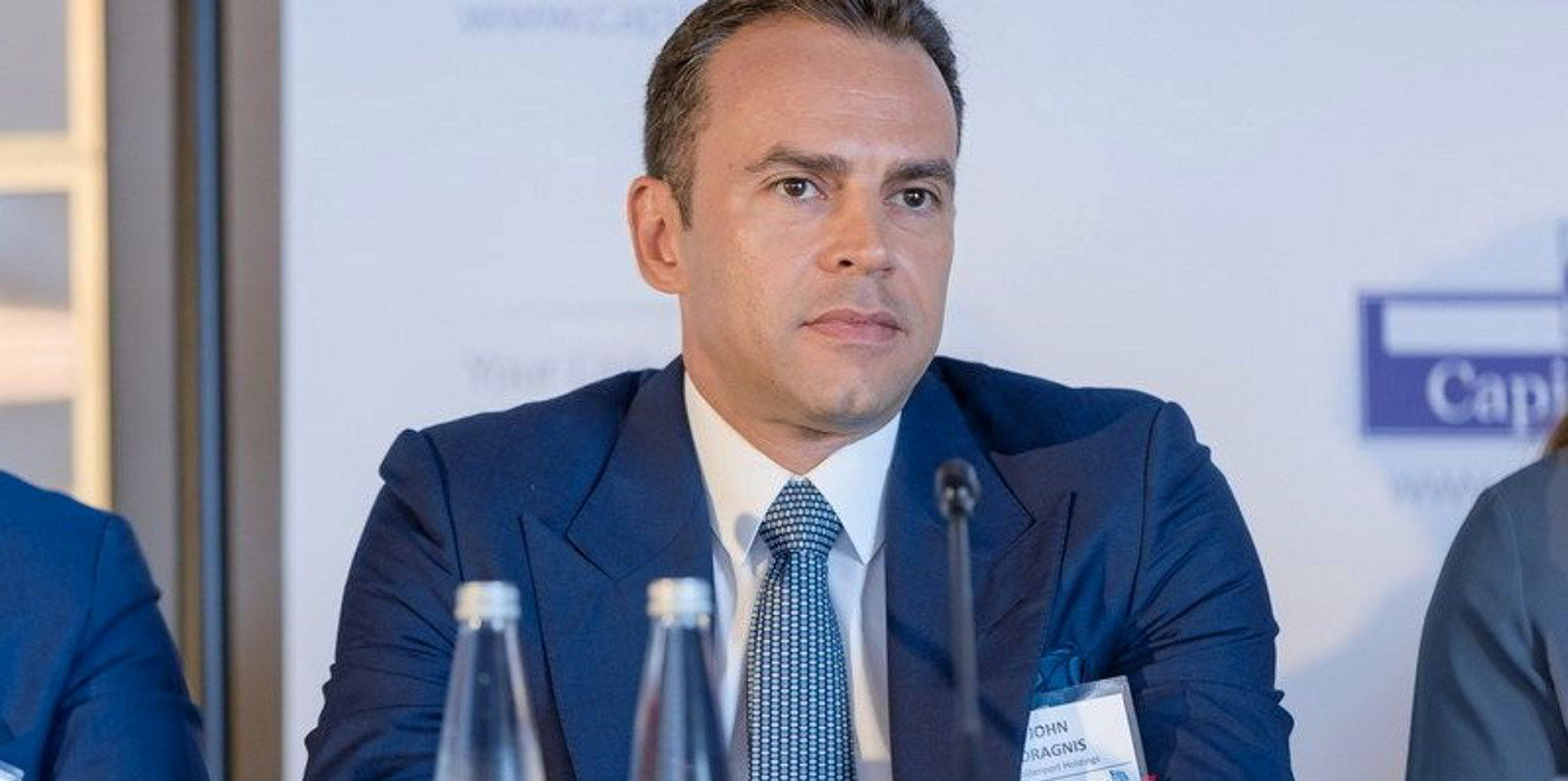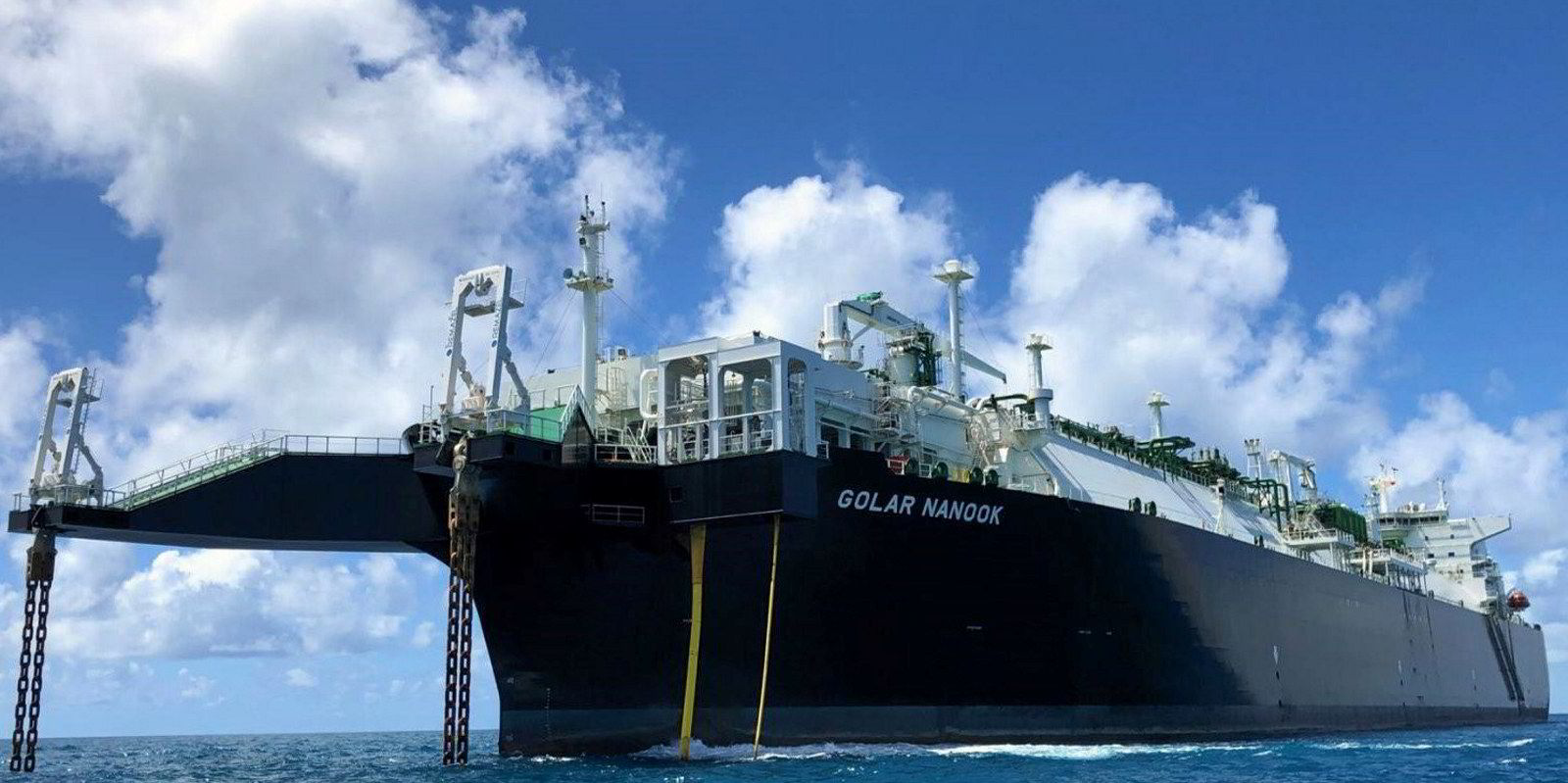A new floating storage and regasification unit (FSRU) with an evocative name was officially unveiled in Athens on Tuesday.
The Argo, named after the ship in the ancient Greek myth of the Golden Fleece, is to be located in the central Greek town of Volos, where legend has it that the Argonauts embarked on their famed journey.
Provisionally budgeted at €350m ($365m), the Mediterranean Gas project aims to be up and running by the first quarter of 2024 with a throughput of 4.6bn cbm per year.
According to application papers submitted to Greek regulators earlier this year, the project plans to charter an LNG vessel from BW LNG.
Initial technical discussions to that effect are already underway, Mediterranean Gas chairman and chief executive Basilio Petkidis told TradeWinds on the sidelines of the presentation.
The Mediterranean Gas project also signed a memorandum of cooperation to be potentially supplied with natural gas from ExxonMobil LNG Market Development, whose vice president Jay Y Song was present at the ceremony.
“We want to work with Greece,” said the ExxonMobil LNG Market vice president during the presentation, expressing his company’s interest to use Mediterranean Gas as a supply point of natural gas for Greece and beyond. “We’re very happy to be here.”
When completed, Mediterranean Gas will have the third FSRU in Greek waters. Two more FSRU-based projects are under development — one backed by GasLog in Alexandroupolis in the country’s north, and another to the west of Athens, which will be operated by Vardinoyiannis-controlled refiner Motor Oil.
The Argo plan began to be developed about two years ago. Europe’s sudden thirst for FSRUs in the wake of the Ukraine war is expected to boost its prospects.
Greek government members were present on Tuesday to highlight their support for the venture, alongside OPEC secretary general Mohammad Sanusi Barkindo who was the keynote speaker.
The FSRU is to have capacity of between 150,000 cbm and 180,000 cbm and will be connected to the mainland through an underwater pipeline of about 340 metres.
A remarkable aspect, from a shipowning point of view, is the Dragnis family’s involvement in the venture.
Acting through its companies Goldenport Shipmanagement and OceanGold Tankers, the clan was known to have extensive interests in bulkers, tankers, container ships and yachts.
This is the first time, however, that the family is publicly associated with LNG-related infrastructure. The fact that Goldenport founder Paris Dragnis hails from the region of Volos, where the FSRU will be built, offers a clue to his interest in the venture.
John Dragnis declined to comment on the stake his family controls in Mediterranean Gas.
The application papers submitted to Greek regulators by the venture, however, show his Goldenport Marine controlling a 20% stake, with little-known entity Vapiando holding 71% and low-profile Norion owning the remaining 9%.

In another part of the application, Goldenport Marine is identified as the “ultimate shareholder” that will also finance the venture through its own funds and bank lending.
According to Petkidis, Mediterranean Gas plans to conduct a market test over the next few months, with a view toward reaching a final investment decision by October.




